
Bawai Village of Dongbanshan Mountain in Mengku Town, Lincang
Chinese Name:勐库镇东半山坝歪老寨
English Name: Bawai Village of Dongbanshan Mountain in Mengku Town, Lincang
Bawai Laozhai Village(坝歪老寨)
Before 2000, there were more than 50 families in the old village of Bawai(坝歪老寨). Because of a large village of Lahu nationality and a small village of Han nationality, in 2004, the county arranged to move all of them down the mountain. But two years later, more than 10 Lahu people returned to the old village from the new village under the mountain. There were four or five hundred acres tea gardens in the old village on the mountain. This may be the reason why the Lahu people moved back to the old village. The ancient tea gardens of more than 200 years in Bawa are almost all in Lahu stockade. Now there are no less than 100 acres left behind. There are also more than 100 acres old tea gardens around Han stockade. It seems that the tea tree is much smaller than Lahu stockade. It is a tea garden planted during the Republic of China. From the tea gardens of the two stockades, it can be seen that Lahu people planted tea earlier than Han people in Bawa.
Old village of Bawai is nearly 2000 meters above sea level and far away from Mengku dam. It is a village with very inconvenient traffic in Mengku. However, the Shuangjiang County Government still developed two or three hundred mu tea plantations in Bawai, from 1958 to 1965. It may be that there has been no primary tea production Institute in Bawai, and tea plantations have not been developed on a large scale. There are far fewer tea gardens in Bawai than in Iceland, Dahusai and other villages, but no new tea tree has been planted in Bawai since 1980. So 100% of pure Mengku large-leaved species in Bawai old village are pure Mengku large-leaved species, and the raw materials of pure Mengku large-leaved species are sold at a higher price in Shuangjiang than other varieties.
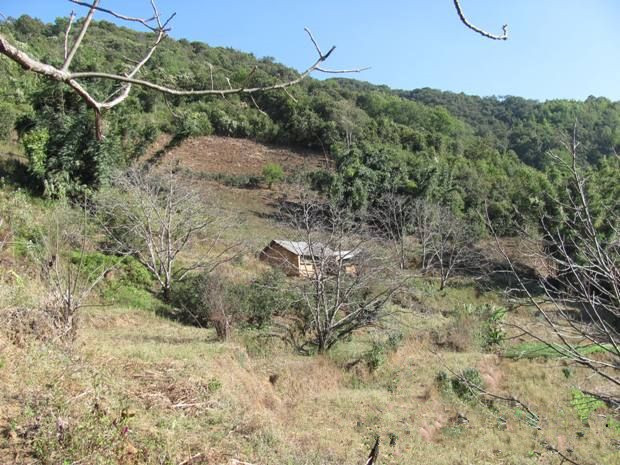
Bawai, located in the northern part of Mengku Town, is a village under the jurisdiction of Bingdao Administrative Village in Shuangjiang County, Lincang City, Yunnan Province. It belongs to the eastern half of the Mengku Ancient Tea Region, with the Mengku River serving as the boundary between the eastern and western halves. While the western half is home to many famous tea mountains, the eastern half, including Bawai, appears more secluded and less competitive. It is noted for its unique tea quality, which has garnered attention. The lack of renown has helped preserve its authenticity.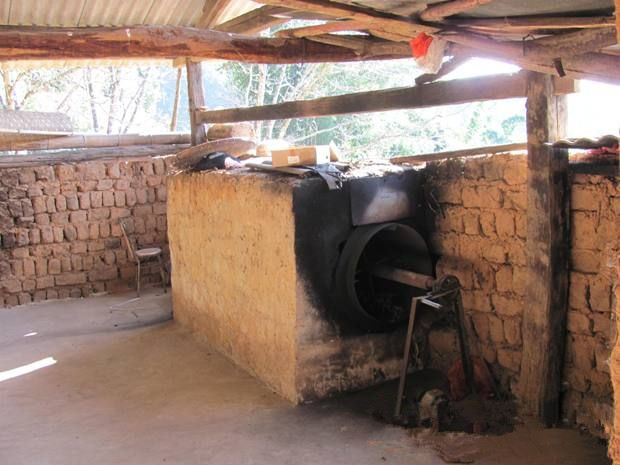
Bawai in Eastern Mengku
The old village of Bawai faces the old village of Bingdao across a deep valley and high mountains. During the day, people from both sides can see each other’s tea fields, but it takes several hours to travel between the villages. To get from Bingdao to Bawai, one must cross the Nanmeng River. Bawai is a Lahu ethnic village situated on a mountain. Due to transportation difficulties and other factors, the government organized a relocation in the early years. Later, some families moved back to their old sites. Originally, the mountain had many dry fields and around 400-500 acres of tea gardens, which is likely why people returned to the old village.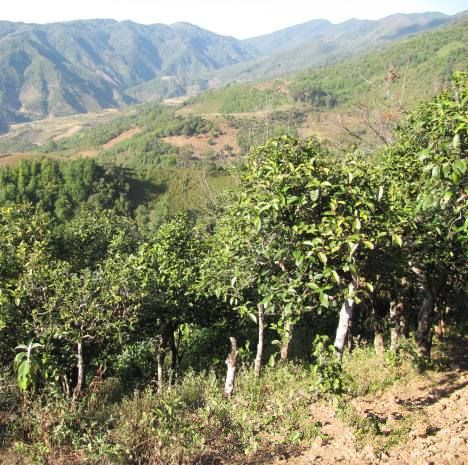
Bawai in Eastern Mengku
The natural village of Bawai, under the Bingdao Village Committee of Mengku Town, is in a mountainous area. It is 25 kilometers from the village committee and 25 kilometers from the town government, covering an area of 0.51 square kilometers, at an elevation of 1500 meters. The average annual temperature is 20°C, and the annual precipitation is 1800 millimeters.
Before 2000, the old village of Bawai had over 50 households, consisting of a large Lahu village and a small Han village. In 2004, the county arranged for a complete relocation down the mountain, but two years later, more than ten Lahu families moved back to the old village from the new settlement. The old village on the mountain still has 400-500 acres of tea gardens, which may explain why the Lahu people returned. The ancient tea gardens in Bawai, some over 200 years old, are mostly in the Lahu village, with fewer than 100 acres remaining today. The Han village also has over 100 acres of old tea gardens, but the tea trees there are much smaller, as they were planted during the Republic of China era. This indicates that the Lahu people planted tea in Bawai before the Han people. Bawai Old Village, at an elevation of nearly 2000 meters and remote from Mengku Basin, is one of the most inaccessible villages in Mengku. However, between 1958 and 1965, the Shuangjiang County government developed 200-300 acres of tea gardens in Bawai Old Village. Due to the lack of a tea processing facility, the tea gardens did not develop on a large scale. Bawai’s tea gardens are far fewer compared to villages like Bingdao, Dongguo, and Dahusai. Since 1980, no new tea trees have been planted in Bawai, making the old village 100% pure Mengku large-leaf variety. The pure Mengku large-leaf tea material in Shuangjiang is priced higher than other varieties.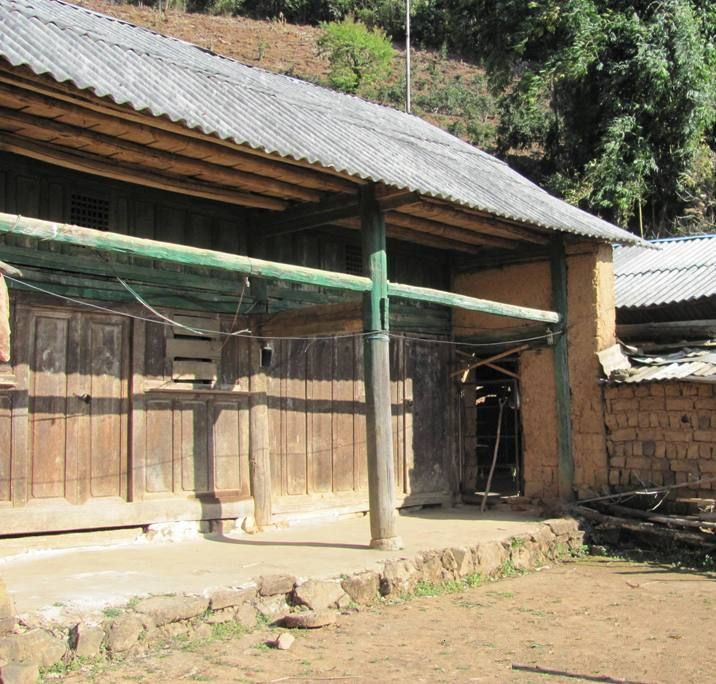
Bawai in Eastern Mengku
Among Mengku’s tea villages, Bawai is the closest to Mengtuo, which already had a tea trading market a hundred years ago. Bawai Mountain is the only tea mountain in the area without road access, so its ancient tea trees are the least influenced by other tea varieties. Since 1980, no new tea trees have been planted in Bawai, making it 100% pure Mengku large-leaf variety. However, Bawai’s tea gardens are very limited compared to Bingdao.
The tea villages under Bingdao Village Committee are closely adjacent and share similarities in tea quality. Due to transportation difficulties and Bingdao’s established reputation, Bawai tea has a relative price advantage.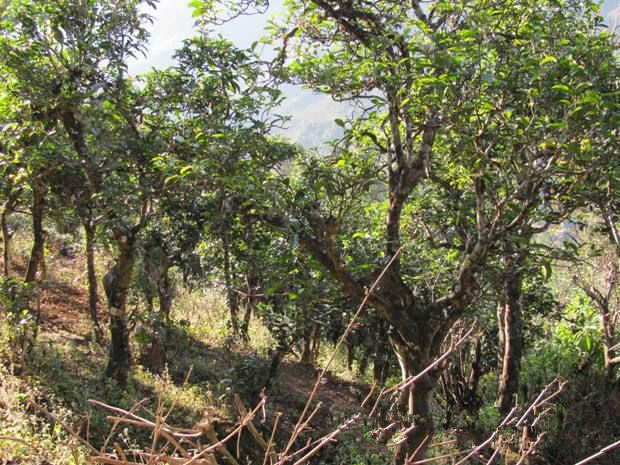
Bawai in Eastern Mengku
The tea from Bawai Old Village is thick and broad. The tea soup is smooth on entry, with a slightly stronger astringency, good sweetness, and rich, subtle aroma but not very enduring. It is similar to Bingdao’s taste, with a weaker aftertaste, making it the closest tea to Bingdao. It is comparable to the distinction between new and old Banzhang teas, which can be difficult for many to differentiate.
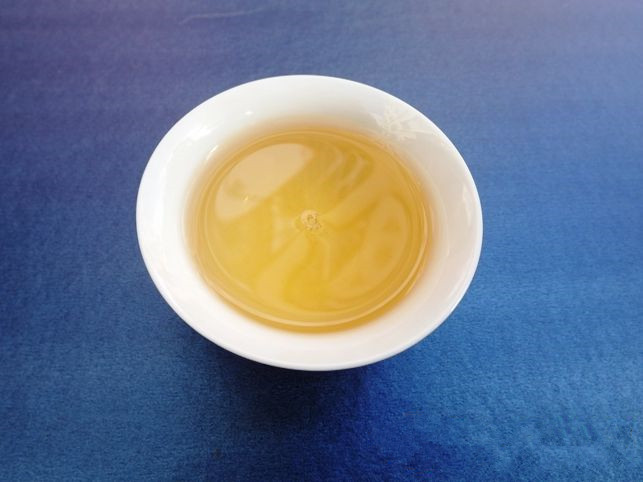
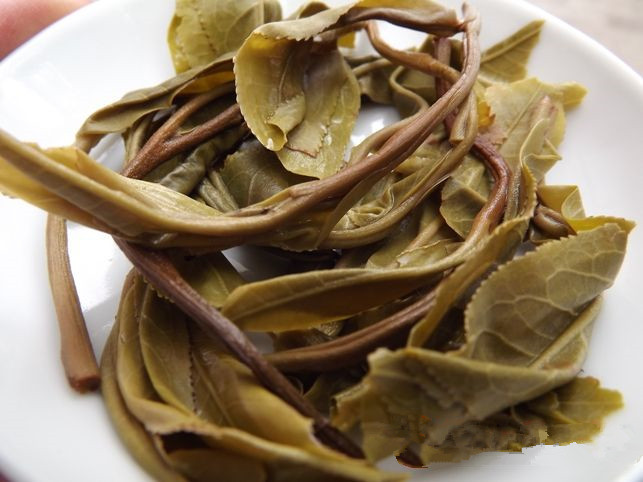

 7 Days GolfingTour
7 Days GolfingTour
 8 Days Group Tour
8 Days Group Tour
 8 Days Yunnan Tour
8 Days Yunnan Tour
 7 Days Shangri La Hiking
7 Days Shangri La Hiking
 11 Days Yunnan Tour
11 Days Yunnan Tour
 6 Days Yuanyang Terraces
6 Days Yuanyang Terraces
 11 Days Yunnan Tour
11 Days Yunnan Tour
 8 Days South Yunnan
8 Days South Yunnan
 7 Days Tea Tour
7 Days Tea Tour
 8 Days Muslim Tour
8 Days Muslim Tour
 12 Days Self-Driving
12 Days Self-Driving
 4 Days Haba Climbing
4 Days Haba Climbing
 Tiger Leaping Gorge
Tiger Leaping Gorge
 Stone Forest
Stone Forest
 Yunnan-Tibet
Yunnan-Tibet
 Hani Rice Terraces
Hani Rice Terraces
 Kunming
Kunming
 Lijiang
Lijiang
 Shangri-la
Shangri-la
 Dali
Dali
 XishuangBanna
XishuangBanna
 Honghe
Honghe
 Kunming
Kunming
 Lijiang
Lijiang
 Shangri-la
Shangri-la
 Yuanyang Rice Terraces
Yuanyang Rice Terraces
 Nujiang
Nujiang
 XishuangBanna
XishuangBanna
 Spring City Golf
Spring City Golf
 Snow Mountain Golf
Snow Mountain Golf
 Stone Mountain Golf
Stone Mountain Golf













